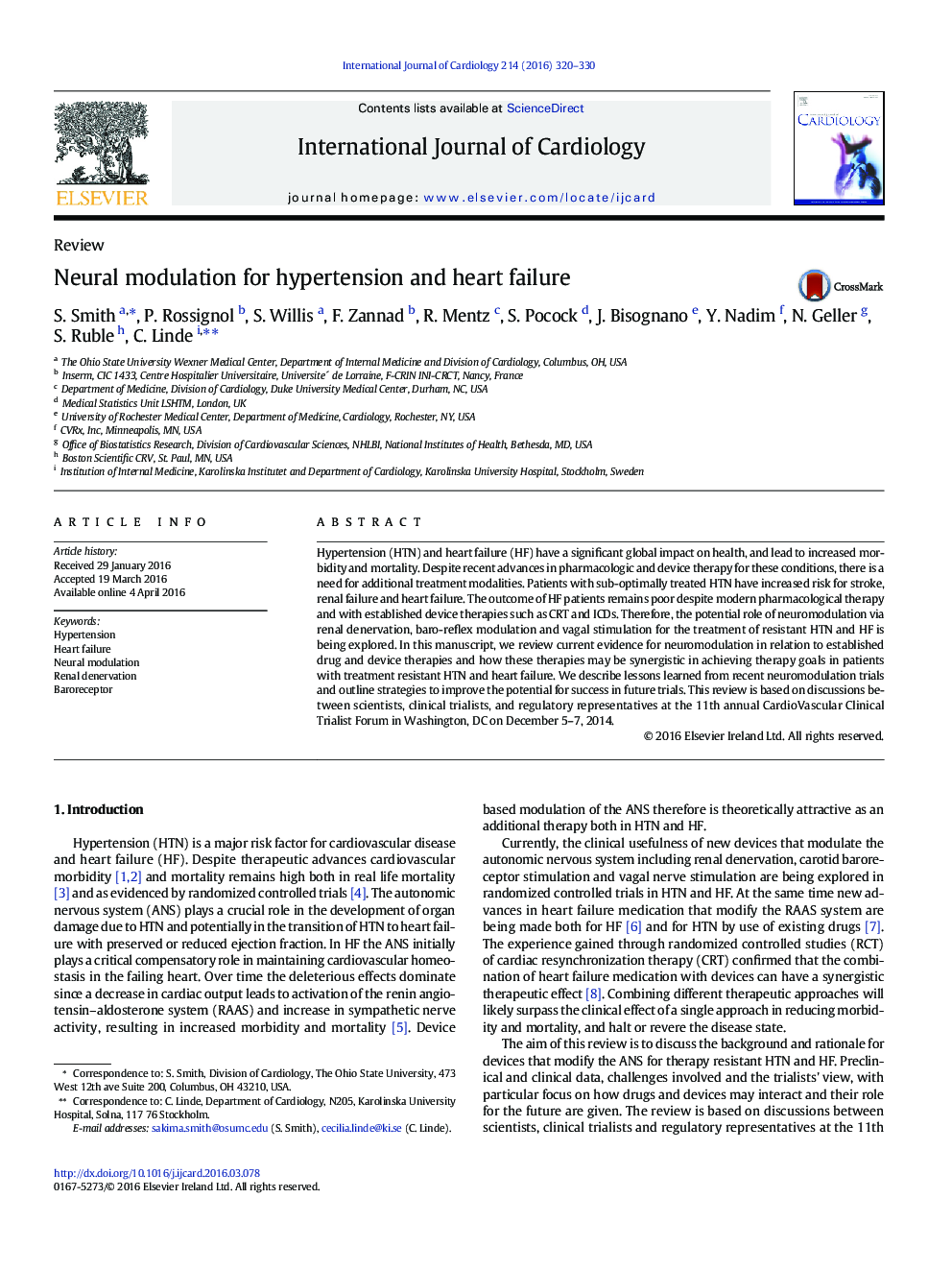| Article ID | Journal | Published Year | Pages | File Type |
|---|---|---|---|---|
| 5964610 | International Journal of Cardiology | 2016 | 11 Pages |
â¢New devices that modulate the autonomic nervous system are being explored as therapies for heart failure and hypertensionâ¢These devices are being evaluated in clinical trials to determine their safety and efficacyâ¢There are many challenges that remain regarding the implementation, safety, and long-term efficacy of these new devicesâ¢Future directions and challenges for neuromodulation include defining the right patient population for these therapies
Hypertension (HTN) and heart failure (HF) have a significant global impact on health, and lead to increased morbidity and mortality. Despite recent advances in pharmacologic and device therapy for these conditions, there is a need for additional treatment modalities. Patients with sub-optimally treated HTN have increased risk for stroke, renal failure and heart failure. The outcome of HF patients remains poor despite modern pharmacological therapy and with established device therapies such as CRT and ICDs. Therefore, the potential role of neuromodulation via renal denervation, baro-reflex modulation and vagal stimulation for the treatment of resistant HTN and HF is being explored. In this manuscript, we review current evidence for neuromodulation in relation to established drug and device therapies and how these therapies may be synergistic in achieving therapy goals in patients with treatment resistant HTN and heart failure. We describe lessons learned from recent neuromodulation trials and outline strategies to improve the potential for success in future trials. This review is based on discussions between scientists, clinical trialists, and regulatory representatives at the 11th annual CardioVascular Clinical Trialist Forum in Washington, DC on December 5-7, 2014.
